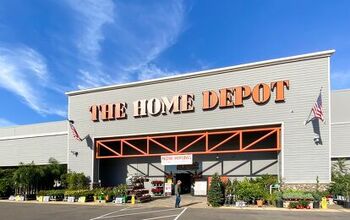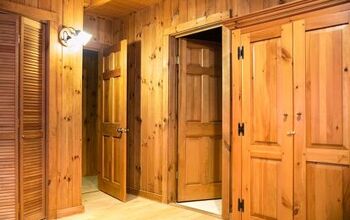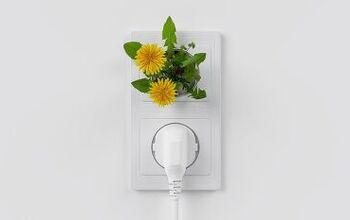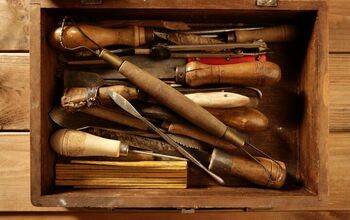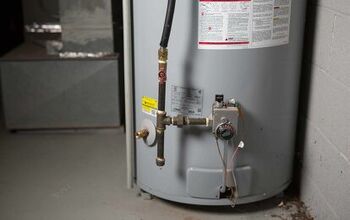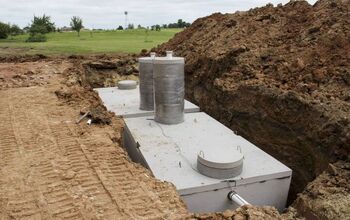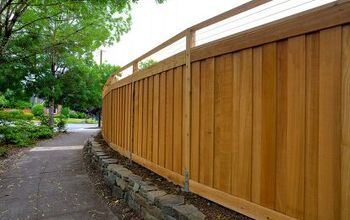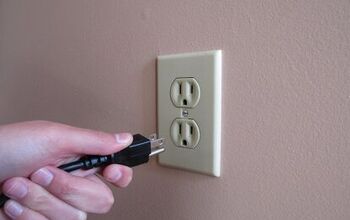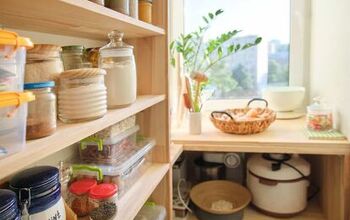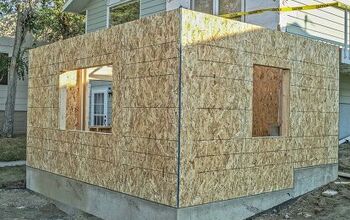12 Yard Safety Tips For Parents

As parents, it’s easy to worry about all the negative things that can happen when your children play in the yard. Even if you supervise them, there are still countless possibilities, from tripping hazards to harmful bugs. That’s why we put together the 12 best yard safety tips for parents.
You can increase yard safety if you eliminate tripping hazards like mole holes, soil erosion, and gardening equipment. Avoid hazards in your yard like installing a trampoline that can cause broken bones and head trauma. Mow your lawn weekly, as tall grass attracts dangerous pests, such as snakes and ticks. Cover your fire pit and grill to make your yard fire-safe.
Parents can also make their yards safe if they educate their children about bugs, plants, and fire hazards. Follow along as we highlight 12 of the best yard safety tips so parents can have peace of mind.
How To Make Your Yard Safe For Kids
1. Eliminate Tripping Hazards
It’s too easy for kids to miss holes in the ground while playing in your yard. This is an easy way to injure their ankles or trip and fall. Whether it be eroded soil or mole holes, you must patch them to make your yard safe for your kids.
You can do this without professional help, or you can opt to hire a landscaper. Other tripping hazards, like hoses, toys, and ladders can also make a yard dangerous. Put your tools away each time you use them to ensure your kids don’t trip outside.
Pick up sticks and fallen branches that your kids could easily trip on. It’s also important to teach your kids to pick up their toys when they leave the yard. Granted, that isn’t easy if they’re young, so you may have to do it for them.
2. Treat Your Yard For Pests
Pests are unavoidable in most yards, and children don’t often have common sense about them. For example, small children may not know to avoid bees, wasps, and spiders. While you can teach them about this, it’s best to eliminate the hazards.
Inspect your yard for anthills, ticks, and wasp nests. It also helps to fix areas with standing water, as that attracts mosquitoes and other pests. Mow your lawn each week to keep ticks away and discourage dangerous animals, like snakes.
Citronella candles can also protect your kids from bug bites, especially at night. Encourage your kids to wear bug spray before they play in the yard. It’s also a great idea to teach them how to check for ticks before they go inside.
3. Fortify Your Swimming Pool
Swimming pools and hot tubs offer family fun, but they are dangerous for children when their parents aren’t around. That’s why you must take measures, such as adding fences and using pool covers, to avoid accidents. A fence that separates your pool from the surrounding grass is essential.
Many parents teach their children about pool safety, but that doesn’t always help when they aren’t around. That’s why it’s essential to supervise children whenever they are near a swimming pool. Establish rules, so your children can only play in or around the pool when you are with them.
4. Avoid A Trampoline
Trampolines are fun, but they are also among the most dangerous yard toys. Today, over 100,000 people visit the emergency room for injuries associated with jumping on a trampoline. It’s a common misconception that trampolines with nets are safe.
A person can easily fall through a trampoline net at any age if they have enough velocity. It’s best to simply avoid trampolines or at least establish strict rules.
5. Eliminate Dangerous Plants
It’s no secret that children are curious at any age, and bright plants in your yard may interest them. However, many plants that look colorful or smell nice are dangerous for children. Whether they ingest them or simply play with them, these plants may be harmful.
Teach your children about plant safety so they don’t touch every plant they see. It also helps to teach them about thorns, so they don’t pick up a rose and get hurt. You may also want to look up and identify all your plants, so you can eliminate the dangerous ones.
6. Lock Your Shed
Sheds typically contain tools that are useful for parents but dangerous to children. Even a pair of garden sheers can seriously injure a child. You can protect your children from these hazards if you lock your shed after each time you use it.
However, you must also put everything away before you lock it. Never leave gardening tools outside in plain view of your kids while they play in the yard. It’s a good idea to keep dangerous pesticides locked in your shed as well.
7. Keep Playground Equipment Dry
Playground equipment is so much fun for children, and that’s why parents spend a small fortune on it. Luckily, modern playground equipment is much safer than it used to be. That said, slides, swings, and other pieces of equipment are still dangerous when they’re wet.
It’s worth it to take a few extra minutes to dry your children’s playground set after it rains. Even morning dew can make a jungle gym or slide too slippery for children. Otherwise, you can simply wait for the playground and toys to dry naturally.
8. Hire A Professional To Install The Playground
Playground equipment can be harder to install than it seems. There are many parts that you must secure and keep track of. It’s worth the cost to hire a professional to install the playground in your yard. This provides peace of mind and makes structural problems much less likely.
9. Minimize Fire Hazards
Many parents have grills and fire pits in their yard or on their property. Children don’t always have the common sense to leave these items alone when they aren’t being supervised. That’s why you must cover your grill and fire pit whenever they aren’t in use.
Propane grills are even bigger fire hazards, as they are easier to start in most cases. Ideally, you should remove lighter fluid, propane, and gasoline whenever you don’t use them. Safely store them in your shed or garage to keep your children away from them.
It also helps to put away skewers and barbecue tools that could hurt your children. Luckily, most parents teach their children at a young age about the dangers of fire.
10. Install A Fence
Children can get out of a yard in the blink of an eye when you aren’t looking. Whether it be chasing a ball or simple curiosity, kids can get in the street all too easily. You can eliminate this risk if you install a fence to keep your children safe.
This will also help keep stray animals that could harm your children out of your yard. Make sure to install a fence that your children cannot easily climb or get around for the best results.
11. Supervise Them
There’s no way to ensure your kids are safe in your yard if you don’t supervise them. Establish appropriate times for your kids to play and stay outside with them. You can even watch them from the window if they’re in plain view. This provides peace of mind for you and your kids.
12. Set Rules In Place
No matter how many precautions you take, your children may get into trouble in your yard if you're not setting out any rules. It’s important to explain the dangers of your yard, so your children understand how to play safely. For example, you can set boundaries about when and where they can play in the yard.
It also helps to mention that they should go inside during bad weather or if they see stray animals. Set boundaries about what you consider bad behavior, such as throwing rocks. This is easier with older children, but it’s never too early to establish yard safety rules with your kids.
Summing It Up
Lock your shed, cover your grill, and eliminate tripping hazards to keep your kids safe in your yard. Dry your children’s playground equipment after it rains to eliminate slipping hazards. It also helps to install a fence and treat your yard for pests to keep your kids safe.
Related Guides:

Nick Durante is a professional writer with a primary focus on home improvement. When he is not writing about home improvement or taking on projects around the house, he likes to read and create art. He is always looking towards the newest trends in home improvement.
More by Nick Durante










